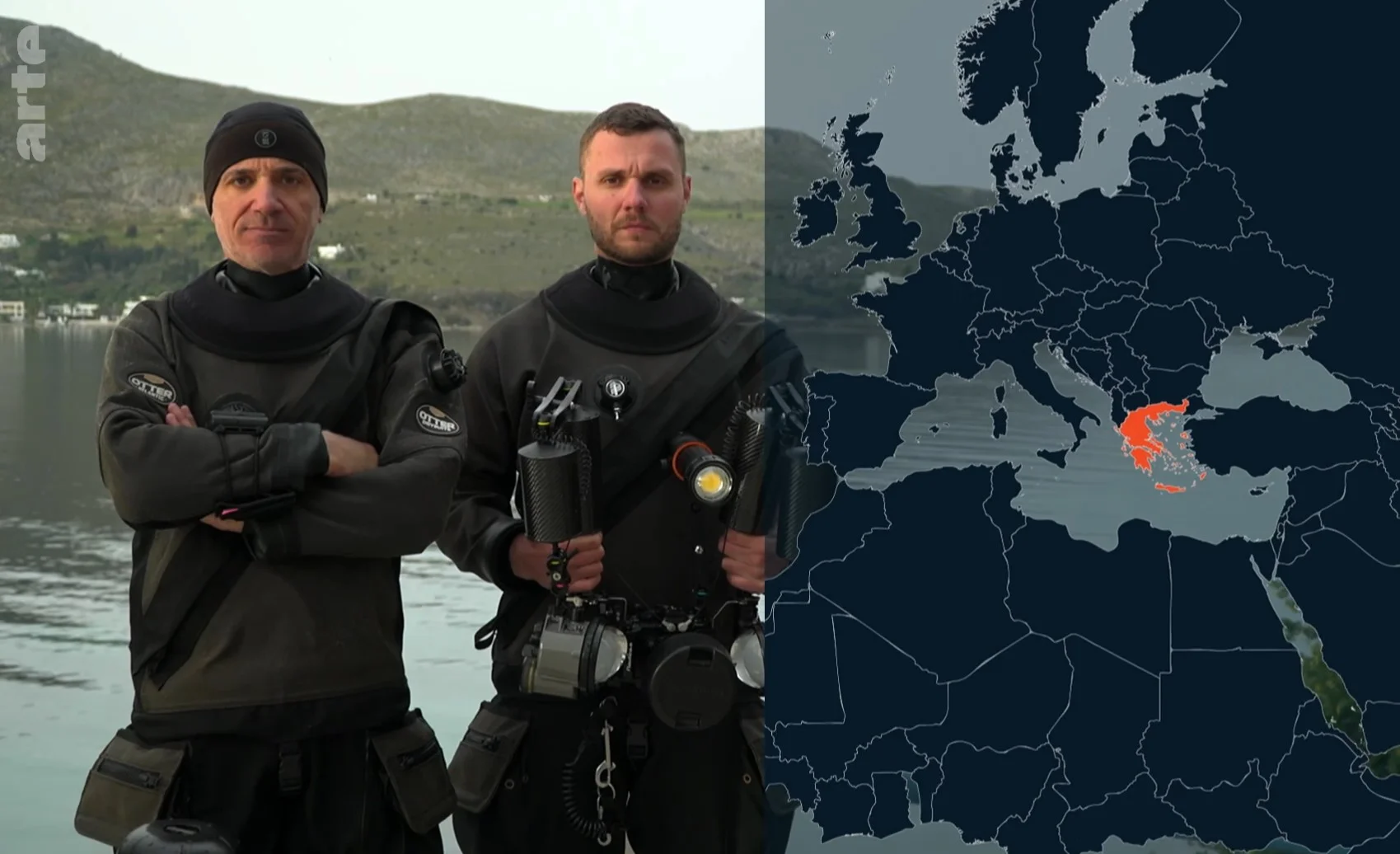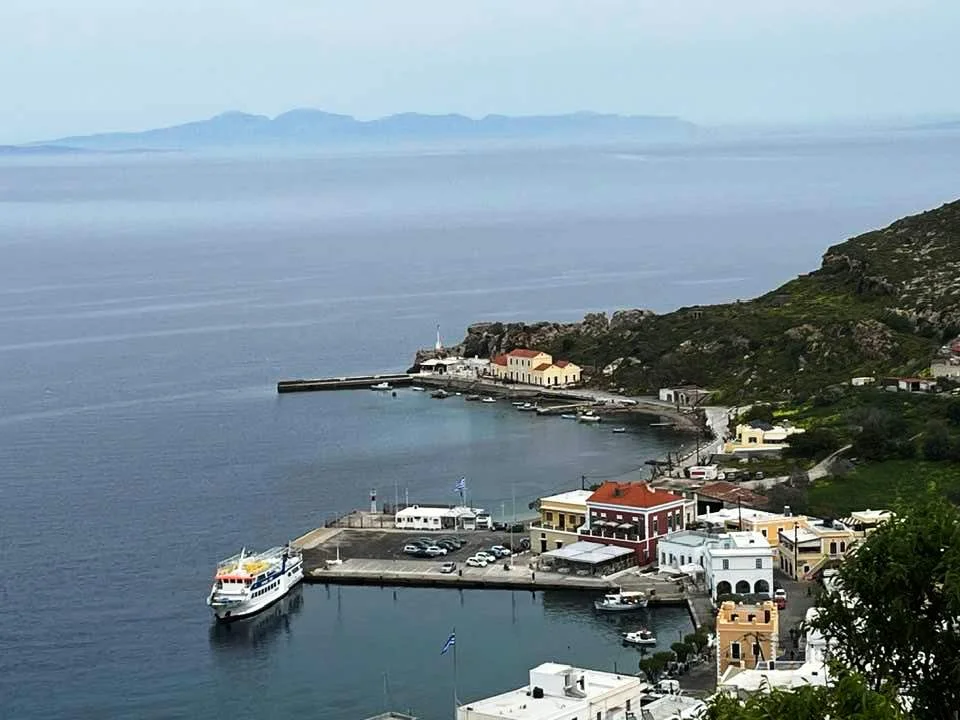Read the Feature (Translated from German)
A Greek Island and Its Legacy from the Second World War
“In 1943, the German Wehrmacht attacked the small Greek island of Leros. Today, the waters surrounding the island are regarded – after Normandy – as one of the largest WWII shipwreck graveyards. Eighty years after the war’s end, the same question is now being raised in Leros: how should the memory of war be preserved, especially for the younger generations?”
Diver Marinos Giourgas comes from a family of seafarers and has been fascinated by underwater wrecks since childhood. He frequently visits Leros, as its surrounding waters are full of WWII shipwrecks – mainly due to the Battle of Leros in 1943, when German forces clashed with British and Italian troops.
During one of his dives, Marinos even discovers a previously unknown wreck. However, time is pressing: due to the high salt content of the Mediterranean, wartime wrecks are deteriorating rapidly.
Franco di Pierro, aged 66 and Deputy Mayor of Leros, also works to keep the memory of the war and the island’s turbulent history alive. His family is of Italian descent and has lived on Leros since the 1920s, when Italy used the island as a military base in the Mediterranean.
Since the creation of the War Museum of Leros a few years ago, locals often offer Franco – regarded as a living memory of the island – wartime memorabilia: old weapons, military equipment, and household items from the Nazi era.
Across Leros, the traces of war remain visible. Franco regularly speaks with the few surviving locals who were children during the island’s bombing, and who speak of war, terror, and the hunger that followed.
Yet, 80 years after the end of the war, one question remains: How can the memory of the war and Leros’s history be preserved for future generations?















